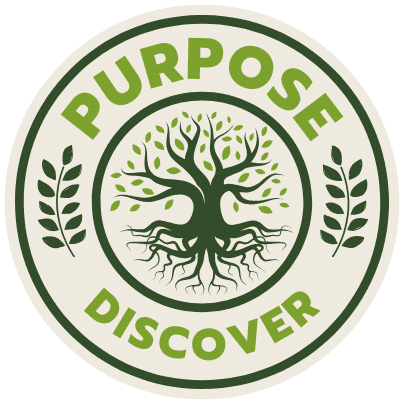Imagine you’re walking through a dense forest, tangled in vines of self-doubt and uncertainty, and suddenly someone offers you a hand—not to pull you out, but to walk alongside you. That gesture, rooted in compassion, might just be the catalyst for a change you never saw coming. Compassion isn’t just some fluffy, feel-good idea; it’s a fierce, grounding force that shapes who we become. When it comes to personal development, compassion is less about sugarcoating our flaws and more about illuminating the path to genuine growth.
What if the reason personal growth feels so elusive is that we’ve been chasing it without kindness? We think it’s all about discipline, pushing harder, setting goals, and grinding. But compassion quietly flips the script—it invites us to look at our struggles and mistakes with open arms rather than a judgmental glare. That shift in attitude can transform how we evolve as people.
Why Compassion Isn’t Just for Others
Most folks think of compassion as something you show to others—being kind to strangers, lending an ear, or volunteering time and energy. But here’s the kicker: the most radical form of compassion is the one you turn inward. Self-compassion is the secret sauce that fuels resilience and self-awareness. When we cut ourselves slack rather than beating ourselves up over every misstep, we create a mental environment where learning sticks instead of fear.
Think about it. If every time you failed, you drowned yourself in criticism and disappointment, your brain would start associating failure with pain instead of growth. That’s a recipe for paralysis. Compassion rewires this by saying, “Hey, it’s okay to mess up. You’re human.” It’s not about making excuses but about giving yourself permission to be imperfect—and from that space, transformation can truly take root.
The Dance Between Compassion and Accountability
There’s a misunderstanding that compassion is soft or a way to avoid accountability. That’s a myth. Real compassion is tough. It means being honest with yourself about where you fall short while also holding space to acknowledge your efforts. It’s a dance between gentleness and firmness.
Imagine a coach who shouts at you every time you make a mistake—that’s not helpful. But a coach who corrects you with empathy and belief in your potential? That’s the kind of feedback that propels you forward. That’s what compassionate personal development looks like: it holds you accountable with kindness, not cruelty.
Breaking Free From Toxic Positivity
In our culture, there’s often a blind push to “stay positive” all the time. But relentless positivity can feel like a straitjacket, making it impossible to sit with discomfort or acknowledge pain. Compassion, in contrast, welcomes the messy, uncomfortable parts of growth. It lets you say, “This sucks right now, and that’s okay.”
Acknowledging your struggles without judgment doesn’t make you weak; it makes you real. It creates a foundation for genuine change because you’re not pretending to be fine—you’re confronting reality with an open heart. That’s where resilience is born. When you stop fighting your feelings and start listening to them, transformation naturally follows.
The Role of Compassion in Building Emotional Intelligence
Emotional intelligence isn’t just some corporate buzzword; it’s fundamental to how we navigate life and relationships. Compassion fuels emotional intelligence by helping us understand not only others but ourselves. When you practice compassion, you become more attuned to your own emotions and can respond thoughtfully instead of reacting impulsively.
This self-awareness leads to better decision-making and less emotional turmoil. For example, instead of lashing out in frustration, compassion helps you pause, recognize your feelings, and choose a response that aligns with your values. That’s personal growth in action—growing your emotional bandwidth so you can handle life’s curveballs with grace.
Why Compassion Is the Antidote to Perfectionism
Perfectionism is often a masked fear of not being enough. It paralyzes us with impossible standards and an endless loop of “not good enough.” Compassion dismantles this trap by reminding us that flaws are part of being human, not defects to be erased. It encourages us to embrace our whole selves rather than chasing an illusion of perfection.
When you treat yourself with compassion, you give yourself permission to fail forward—that is, to learn and evolve through mistakes rather than get stuck in a cycle of self-loathing. This shift frees up immense energy for creativity, risk-taking, and authentic growth. Suddenly, personal development feels less like an uphill battle and more like an exploration.
How Compassion Shapes Our Connections and Supports Growth
No one grows in isolation. Compassion strengthens the bonds we share with others, creating communities where personal development flourishes. When we approach relationships with compassion, we build trust and openness, making it easier to give and receive feedback without fear.
Think about the last time someone really listened to you without judgment or interruption. That sense of being seen and valued can spark clarity and motivation. Compassionate relationships serve as mirrors, reflecting back our strengths and blind spots in ways that encourage deeper growth.
A curious thing happens when compassion becomes part of your personal growth toolkit: You start noticing the humanity in others, even in those you find challenging. This broadens your perspective and helps you move past grudges and resentments that weigh you down. It’s growth that feels less lonely and more interconnected.
Embracing Compassion in Everyday Practices
If compassion sounds great but fuzzy, here’s something concrete: start small. Maybe it means pausing before you criticize yourself when things go sideways. Or it could be jotting down moments when you acted with kindness—to yourself or someone else. Over time, these tiny acts build a compassionate mindset.
Mindfulness and meditation can also be powerful allies, training the mind to notice harsh self-judgments and gently redirect toward understanding. But compassion isn’t some mystical state reserved for monks; it shows up in simple choices—like how you talk to yourself in the mirror or how you respond to setbacks.
If you want a fresh perspective on how purpose and compassion intertwine, check out this insightful resource at discovering your deeper sense of purpose. It’s a reminder that compassion is the soil where personal meaning grows.
The Unseen Power of Compassion in Shaping Identity
Growth isn’t just about acquiring new skills or habits. It’s about who we become beneath the surface—the stories we tell ourselves about who we are and what we deserve. Compassion rewrites those stories. It challenges the internal narratives of unworthiness, failure, and fear, replacing them with ones rooted in acceptance and possibility.
What kind of story do you want to live by? One that beats you up every time you falter, or one that nudges you forward with kindness and encouragement? The choice is yours, and compassion is the pen.
Some Final Words That Don’t Feel Like a Wrap-Up
If personal development were a playlist, compassion would be the bassline you didn’t realize you needed but suddenly can’t live without. It gives rhythm to the chaos, depth to the effort, and meaning to the journey. Without it, growth risks becoming a hollow checklist. With it, growth becomes an act of love—toward yourself and the world.
So next time you catch yourself spiraling into criticism or frustration, pause and ask: What would compassion do here? It’s a question worth returning to, over and over. Because in that space, real change begins—not in the race to be better, but in the quiet art of being human.
If you’re curious about how compassion can illuminate your personal journey further, there’s a thoughtful community exploring purpose and growth at finding your meaningful path. Dive in and see where compassion can take you.

